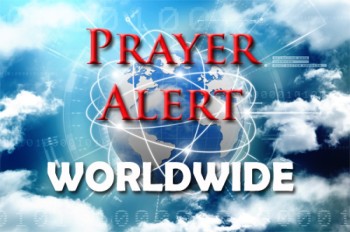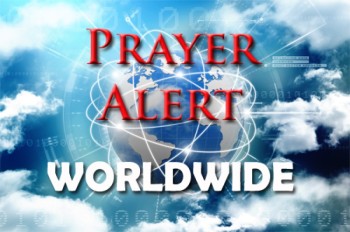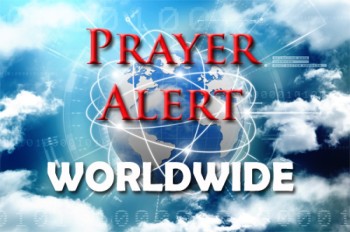Displaying items by tag: Ethiopia
Ethiopia: sexual violence as a weapon in forgotten war
Women and girls in Ethiopia’s Amhara region are facing a hidden crisis of conflict-related sexual violence as fighting between the national army and Fano militias continues. Survivors describe soldiers entering homes, threatening family members, and committing rape as a weapon of intimidation and punishment. Many victims, some as young as eight, are left in physical pain, psychological trauma, and deep shame, fearing stigma from their communities and even from their churches. Limited medical access means many do not receive the urgent treatment which could prevent HIV or pregnancy. Health workers report rising cases, but say that the numbers available represent only a fraction of the suffering, especially as law and order has broken down and accountability is rare. Rights groups warn that the violence reflects a pattern of impunity within Ethiopia’s security forces. For women like Enat, who is now raising a child conceived by rape, survival is overshadowed by fear, loss, and an uncertain future - yet also remarkable courage.
Ethiopia: at least 229 dead after landslides
At least 229 people have died after two landslides struck Ethiopia on consecutive days, with pregnant women and young children among the victims. The second landslide buried those attempting to rescue individuals trapped by the first. The total number of missing persons remains unclear. The initial landslide occurred after heavy rain on Sunday, followed by a second one on Monday, raising the initial death toll to 50. "I don't know when it will stop. We are still recovering bodies," said Markos Melese, director of the disaster response agency in Gofa Zone. Children have been seen clinging to the bodies of family members lost in the disaster. Local administrator Dagmawi Ayele reported at least five survivors being pulled out alive, while many victims remain buried. Footage shows people using shovels and bare hands to dig through the thick mud, with women wailing in the background. Prime Minister Abiy Ahmed expressed his deep sadness over the "terrible loss," and federal officials have been deployed. The World Health Organisation, led by Ethiopian Tedros Adhanom Ghebreyesus, has also dispatched a team to assist. Ethiopia's rainy season, which began in July, is expected to last until mid-September.
Ethiopia: nearly 400 have died of starvation
Ethiopia's national ombudsman has revealed that nearly 400 people have died of starvation in the Tigray and Amhara regions in recent months. Local officials had previously reported such deaths, but the federal government had denied these claims. The UN and the USA had suspended food aid in Tigray and Ethiopia after discovering a ‘large-scale’ scheme to steal humanitarian grain. but lifted the pause in December after implementing reforms. However, Tigray authorities claim that food is not reaching those in need, citing technical issues and funding shortages. Only 14% of the 3.2 million people targeted for food aid in Tigray had received it by 21 January. The Tigray Food Cluster, a group of aid agencies, has urged immediate scaling up of operations to prevent severe food insecurity and malnutrition, particularly among vulnerable children and women. Approximately 20.1 million people across Ethiopia require humanitarian food assistance due to drought, conflict, and economic challenges.
Ethiopia / Somaliland: port agreement angers Somalia
An agreement on 1 January by breakaway Somaliland to allow Ethiopia to use the Red Sea port of Berbera has been condemned by Somalia as dangerous for regional stability. Since 1991, when Eritrea gained independence, Ethiopia has been landlocked and reliant on neighbouring Djibouti for maritime trade access. The new agreement, signed by the Ethiopian prime minister and Somaliland’s president, includes acknowledging Somaliland as an independent nation and giving it a share of the ownership of Ethiopian Airlines in due course. Somaliland, which declared autonomy in 1991, lacks widespread international recognition; Somalia insists that it remains part of its territory. Following mediation by Djibouti, the two countries have agreed to restart talks to resolve their dispute.
Ethiopia: risk of another civil war
An airstrike in Ethiopia’s Amhara region has killed 26 people, as detailed widespread killings of civilians broke out this month. Fano militiamen had flooded towns and cities in Amhara, briefly taking over several of them; they attacked police stations and garrisons, freed prisoners and intermittently took control of Lalibela airport. Early in August federal forces managed to push them out. Ethnic tensions and land conflicts lie behind Amhara’s clashes. This fighting is Ethiopia’s biggest security crisis since the civil war in neighbouring Tigray ended in November 2022, but there is now a state of emergency. Many had hoped Ethiopia was inching back towards stability and away from a conflict that caused hundreds of thousands of deaths. Prime minister Abiy Ahmed’s reputation as a Nobel-prizewinning peacemaker is being shredded. He had hoped to reach deals with the IMF and the World Bank to rescue Ethiopia’s war-wrecked economy.
Ethiopia: Warring parties agree a ‘permanent cessation of hostilities’
The Ethiopian government and the Tigray People’s Liberation Front (TPLF) have agreed to permanently end hostilities, in a significant step toward ending the grinding war that has seen thousands killed, millions displaced, and millions more in urgent need of food assistance after two years of conflict. Tigray rebels will eventually ‘disarm’ and have agreed on a detailed program of disarmament, demobilisation, and reintegration for the TPLF combatants, taking into account the security situation on the ground. There will be ‘systematic, orderly, smooth and coordinated disarmament, restoration of services, unhindered access to humanitarian supplies, protection of civilians, especially women children and other vulnerable groups.’ The peace process has been fitful until now. The African Union (AU) representative said, ‘This is not the end of the peace process but the beginning of it.’ An AU high-level partner will be tasked with monitoring, supervising and implementation.
Ethiopia: Pray for change
In Ethiopia’s first free and fair election last year, after decades of repressive rule, the Prosperity Party won. However, an opposition boycott and the war in the Tigray region that left many dead and two million people displaced overshadowed the election. Prime Minister Abiy Ahmed has now lifted a ban on opposition parties, released tens of thousands of political prisoners, and is opening up one of Africa’s last untapped markets. Praise God that the Inter-Religious Council has declared a week of prayer. Pray that calls for peace will be amplified on all fronts as the prayers are broadcast on religious and secular television channels and pray that the ethnic battle will stop. Pray that the frightened people will receive encouraging counselling to release their stress and anxieties in productive ways. Pray that in the new regime, multitudes will hear the Gospel and many will accept Jesus Christ as their Saviour. May they be trained to grow in faith through the efforts of the Churches.
Horn of Africa: unprecedented famine
Unprecedented famine grips parts of Africa. Four years of droughts, Covid-19, and the Ukraine war have created dire conditions. In Somalia, Ethiopia, and Kenya, one person dies from hunger every 48 seconds. Water sources and wells have dried up. Crops have failed, livestock have died, and 22 million people may starve. Many farmers only grow enough to feed themselves. Many relying on livestock see their animals die. Families forced to flee looking for food embark on very perilous journeys. The level of pain and suffering is devastating. Half of Somalia’s population are experiencing crisis hunger levels. One in three children face chronic malnutrition. Before Ukraine’s war Somalia imported 90% of its wheat from Russia and Ukraine, Ethiopia imported 42%. Kenya 44%, plus oil, iron, steel, and fertilisers. In late August, the first grain shipment from Ukraine brought 23,000 tons of wheat - enough for 1.5 million for a month, a drop in the bucket for needy millions. See also the Europe article on Ukraine cargo ships leaving.
Ethiopia: civil war
Drone strikes have killed ten civilians and wounded thirteen in the capital of Ethiopia’s Tigray region. Tigray hospitals are cut off from vital supplies, putting the wounded in more danger. The civil war in Ethiopia ignited again in recent weeks. The Tigray Liberation Front offered a ceasefire, but the Ethiopian central government has yet to respond. Unfortunately, some Christians within Ethiopia have advocated for continuing attacks. People calling themselves prophets have arisen among the evangelical leaders, who are quite strong across Ethiopia in their support of the government. They say, ‘God is with you. Now is the time to move forward with the attack.’ After many months of fighting there are ongoing challenges of electricity being off and banks closed. But churches have continued to meet. Under the pressure of hunger and lack of peace, they still worship and serve the Lord. They are like North Korean and Chinese Christians.
Ethiopia: prayer needs
Ethiopians have a catastrophic hunger crisis after four failed harvest seasons due to drought. There are dire predictions for the autumn harvest. 91% of people in southern Ethiopia live in rural areas, depending on livestock and agriculture to survive – the backbone of Ethiopia’s economy. All grazing lands and water sources have dried out. Livestock and crops have perished. There are severe food shortages. People travel for hours searching for water. This responsibility falls to women and girls, putting them at risk on dangerous routes. Girls are also missing school. Pray for agencies to provide adequate nourishing food and clean water where it is needed. Pray for people to feel God’s love and comfort surrounding them. Pray that there will be no long-term side effects or medical conditions due to hunger. Ask God to bring the rainfall that is needed; may this lead to abundant harvests and water sources springing up again closer to communities.









